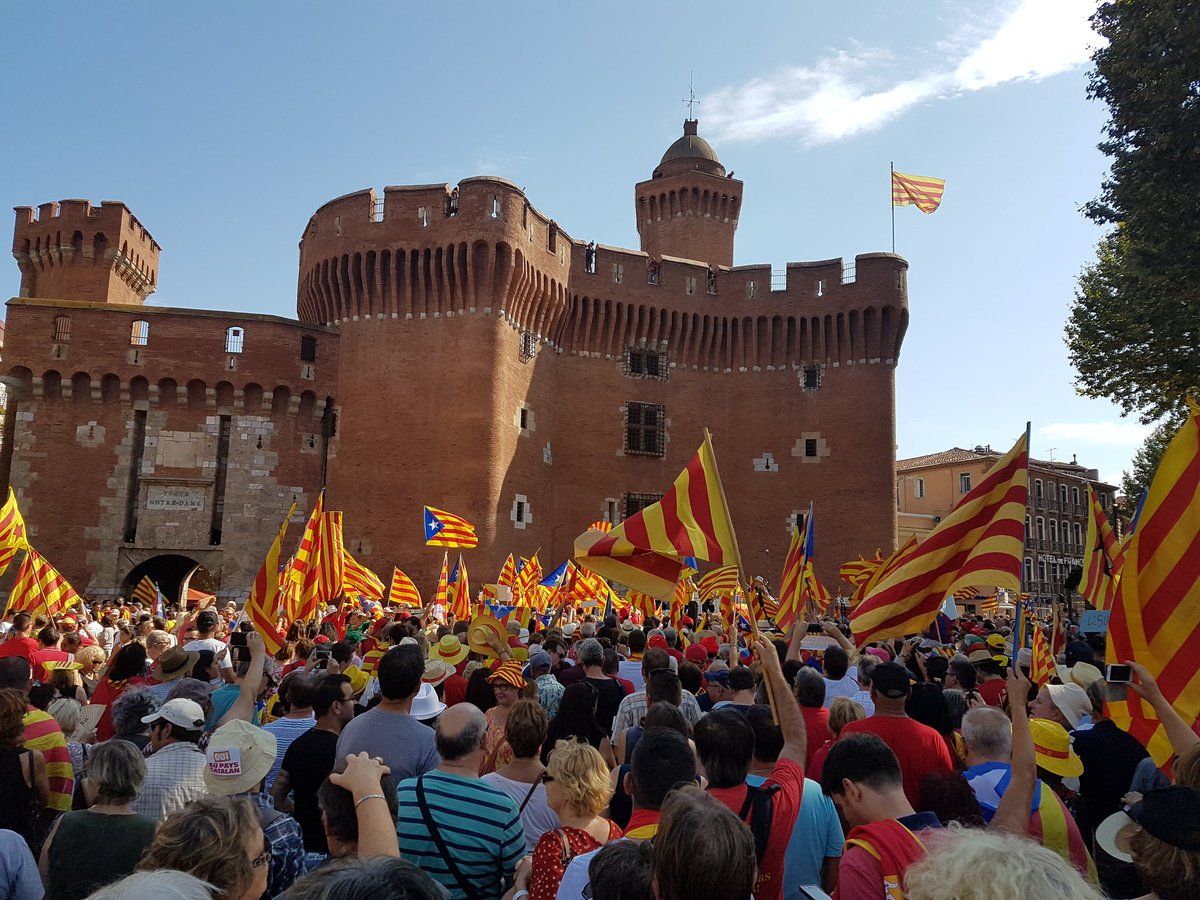In 1659, Spain ceded a small area of territory to France, territory that had been historically and culturally Catalan. Today, that region is known as Catalunya Nord, "Northern Catalonia". Whilst the independence sentiment might not yet have crossed the Pyrenees, the situation is being followed closely, "longingly and apprehensively". That's according to a report by French newspaper Le Monde whose byline highlights that "police violence has awoken a wave of sympathy and solidarity" towards their southern neighbours. "They'd hardly believed in this independence referendum on the other side of the Pyrenees. Since Sunday 1st October, they've understood."
The Parisian paper reports that many elected officials (mayors and councillors at département or local council level) crossed the border either as observers, in friendship or out of simple curiosity. They came back "shocked by what their neighbours had been through". Their Catalan identity, often limited to folklore, is now a question of their future.
They paint a picture of what Catalan identity had meant in the area: "They would sing L'Estaca, a symbol of the struggle against Francoist oppression, during matches played by USAP, the local rugby team. They would dance the sardana and applaud castells (human towers) during village fêtes. The most passionate would send their children to Catalan public or non-profit independent schools". As the mayor of Perpignan, Jean-Marc Pujol said "the attachment is cultural, not political nor in terms of identity". Everything was seen from a certain distance.
But, on 19th September, when the public prosecutor summoned more than 700 mayors everything fell into place, according to Le Monde. Following an initiative from Nicolas Garcia, communist vice-president of the Pyrénées-Orientales ("Eastern Pyrenees") department, a group of elected officials showed their worry for "'repression' ordered by Madrid", followed by the 129 mayors of the Sindicate for the promotion of the Catalan language. In the villages nearest the border, the most involved, they say, it went further. Pézilla-la-Rivière, with 3500 inhabitants, published a tweet saying that "ballot boxes don't bite". All the town's elected officials, of all parties, crossed into Spain to observe the vote.
The report notes that Pyrénées-Orientales is one of France's poorest departments and that many young people leave for Catalonia in search of better opportunities. "Many feel forgotten by Paris and by the region."
One curiosity mentioned by the paper took place in Elne where "dozens of ballot boxes" were hidden and voting slips were printed "in secret 'in the area'". "What happened on Sunday changed the image of Catalans", said Jean-Paul Alduy, former mayor of Perpignan. "It was a start of realisation."

